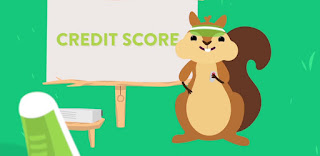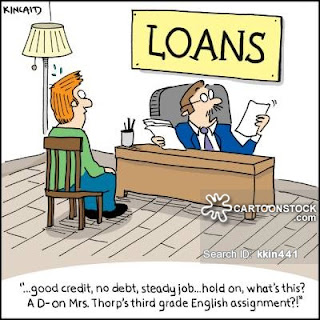Credit gets a bad wrap in financial circles, especially those focused on helping folks get out of debt. However, is getting credit always such a dangerous thing? We’ll investigate below.
Credit is Good - How The System Works
One reason that credit could be said to be good or at least valuable is that it is the system that allows you to make big-ticket purchases without having the cash to pay for them outright. Yes, OK, in an ideal world we’d all buy our yachts, houses, and vehicles in one single purchase, but in reality, this hardly ever happens. Despite this situation though, we can see get access to these things, and that is largely due to credit.
Credit is Bad - Can Create Debt
The biggest problem that many people have with credit is the charges that are made to use it. These usually come in the form of interest. This is a fee that you pay on top of the money you owe back.
The problem here is that if the interest rate you pay is set high or is not fixed, you can end up paying a large sum back, while still not paying off too much of the actual money that you owe. Something that can make it very difficult to get out of debt.
Credit is Good - Choose To Use It Well
However, it is important to note that the issue with credit isn't strictly cut and dried. In fact, you have to remember that it the credit providers and cards are something that we choose to use. That means if we make a good choice it can be a helpful thing.
Some people argue that this choice reduces when you don't have a good crediting rating and this forces you to pick credit offer with high repayments rates. However, as you can see from this post, it is just about doing your proper homework and finding the best offers out there to suit your needs. Then you can be in control of your credit borrowing instead of it being the other way around.
Credit is Bad - Perpetuates The System
Some folks believe that the whole idea of credit is wrong, and it plays into our materialistic society. They suggest that it is something that keeps us in the trap of wanting things that we don't really need or can't afford just because we are exposed to them via adverts all of the time. To them it keeps us trapped in a system that works purely on consumerism and not need.
Credit is Good - Provides For Emergencies
One factor that the critics of credit often forget is that for many people it is their only recourse when in the midst of an emergency. That means they don't put their grocery shopping on their credit card, and a trip to the mall certainly isn't something that they would use it for either.
Instead, having access to credit means if they encounter a medical problem, or their vehicle is involved in an accident they can cover this cost. It also means they can pay and it won’t eat into the rest of their budget that is earmarked for other things.
Yes, sometime it means paying off over a longer period. However, it also means you can set a payment that is affordable and won't interfere with your families everyday life style will still allowing the debt to be paid off.
Credit is Bad - Lenders don't always check
Last of all, some people perceive credit as bad because some lender are unscrupulous on who they are lending to. This means they grant credit without doing the proper checks and at a rate that most people struggle to pay off. Something that can cause serious problem for the browser while just making added money for the lender.
Luckily, the financial industry has clamped down on these sort of lenders recently and the system is much more closely regulated. Something that makes it a lot harder for borrowers to get into unreasonable debt solely by using credit.
In Conclusion
Unfortunately, most us cannot change the system or even go against it in our everyday lives. That is why, in conclusion, it is much more productive to see credit as useful service that can help out in emergency situations such as when medical fee need to be arranged, and when we need to make larger purchases. Credit, in fact, could be said to be a good thing for the most part, as long as we handle it correctly.



